- Home
- Timothy Zahn
Night Train to Rigel Page 3
Night Train to Rigel Read online
Page 3
“I thought all maintenance work was done in the stations themselves.”
Hermod’s massive shoulders shrugged slightly. “Most of it is,” he said. “The Spiders don’t advertise the existence of these other facilities.”
“Well, this should certainly make up for that,” I pointed out. “Or don’t you think New Tigris is going to wonder when their incoming Quadrail comes up two cars short?”
“Give the Spiders a little more credit than that,” Hermod said dryly. “They would hardly have gone to all this trouble to speak privately with you and then let something so obvious ruin it. No, you’ll be rejoining the rest of the train well before it reaches New Tigris.”
“Ah,” I said, making a conscious effort to sit back in my chair as if I were feeling all relaxed, which I definitely was not. So not only did the Spiders want a chat, they wanted a very private chat. This just got better and better. “So what’s this all about?”
“The Spiders have a problem,” Hermod said gravely. “One which may well determine the future of the entire galaxy. They thought you might be able to help them with it.”
“What makes you think that?” I asked, feeling sweat popping out all over my body.
“You’re a well-trained observer, investigator, and analyst,” he said. “Trained by one of the best, in fact: Western Alliance Intelligence.”
“Who sacked me over a year ago,” I reminded him, passing over for the moment the question of whether Westali really was one of the best.
“But not for lack of ability,” Hermod reminded me right back. “Merely for—what did they call it? Professional indiscretion?”
“Something like that,” I agreed evenly. That was what the dismissal papers had called it, anyway. Professional indiscretion, like I’d been caught stealing hotel towels or something. I’d sparked a major furor in the press, been responsible for a handful of political scapegoats having their heads handed to them in the hallowed halls of the United Nations, and earned myself the permanent loathing of both the secretary-general and the Directorate in the process.
And all they’d had the guts to call it was professional indiscretion.
But I let that one pass, too. “There are plenty of other ex-Westali people around who are as good as I am and a lot more respectable,” I said instead. “So again: Why me?”
Hermod’s forehead wrinkled. “Your reticence puzzles me, Mr. Compton,” he said. “I would think that, considering your present circumstances, you’d jump at the chance for employment.”
My present circumstances. On the surface, an innocent enough expression. Nearly as innocent, in fact, as professional indiscretion.
Did he and the Spiders know about my new job? It was hard to imagine how they could, not after all the paranoid-level convolutions we’d gone through to keep it secret.
On the other hand, it was equally hard to imagine how they could not know. Their messenger had been right there, after all, right outside the New Pallas Towers the evening the whole thing had been finalized.
But there was no hint of any such secret knowledge in Hermod’s face or body language. There was no anticipation I could detect no sense of the hunter waiting eagerly beside his trap as the prey wanders toward the tripwire. There was nothing there, in fact except an almost puppy-dog earnestness set against a background of distant fear and unease. If he did know about me, he was being damn coy about it “So my present circumstances aren’t as good as I might like,” I said. “How about some information instead of flattery?”
His lips puckered. “There are many mysterious places in this galaxy,” he said. “One of them, which the Spiders have dubbed the Oracle, sits a short distance from a siding similar to this one. Occasionally, Spiders passing through the area see visions of future events.” He gestured at the Spider standing over him. “Five weeks ago, this Spider saw the future destruction of a Filiaelian transfer station.”
I sat up a little straighter in my chair. Filly transfer stations were among the biggest and best-protected in the galaxy. “How sure are you that it was a Filly station?”
“Very sure,” Hermod said, his voice darkening. “Because there were the remains of two gutted Sorfali-class warships drifting alongside it.”
I threw a look at the Spider. “Your friend’s been hallucinating,” I said flatly. “Filly soldiers are genetically programmed against rebellion or civil war.”
“I never said it was a civil war,” Hermod countered, his voice going even darker. “The attack came from somewhere outside the system.”
I looked over at The Girl’s expressionless face. If this was a joke, no one was laughing. “Now you’re the one hallucinating,” I told Hermod. “You can’t smuggle weaponry through the Tube. Certainly nothing that could take out a Sorfali. You know that better than I do.”
“It seems impossible to the Spiders, as well,” Hermod agreed. “Nevertheless, that is what he saw. And since the Oracle’s past visions have subsequently proven valid, the Spiders have no choice but to assume this one may, too.” His eyes locked onto mine. “I trust you don’t need me to spell out the implications.”
“No,” I said, and I meant it. There were twelve empires spanning the galaxy, or at least twelve species-groups the Spiders officially recognized as empires. A few of them, like the five worlds of our pathetic little Terran Confederation, weren’t worthy of the name; others, like the Filiaelian Assembly and Shorshic Domain, were the genuine article, consisting of thousands of star systems spread across vast reaches of space. Historically, at least on Earth, powerful empires seldom bumped into each other without eventually going to war, and from what we knew of alien psychology there was no reason to assume anyone out there would react any differently if they had a choice.
Only in this case, they didn’t. The only way to cross interstellar distances was via Quadrail, and there was simply no way to stuff a war machine into a group of Quadrail cars. The only exception was interstellar governments, who under very special and very strict transport conditions were allowed to ship the components of planetary defenses through to their own colonies.
Which meant that anyone who wanted to make war against his neighbor would find himself facing as much military nastiness as the intended victim had felt inclined to set up. In a Quadrail-run galaxy, defense was king.
But if someone had figured out how to take out not only a transfer station but a couple of warships along with it, cozy peacefulness and stability were about to come to a violent end. “Was there anything else in this vision?” I asked. “Any idea which of the Fillies’ stations it was, or who might have been involved?”
“Neither,” Hermod said. “But he did see that the Filiaelian warships carried both the insignia of the current dynasty and the one scheduled to come to power in four months. We can therefore assume the attack will take place sometime during the transitional period.”
Four months. This just got better and better. “That’s not much time.”
“No, it’s not,” Hermod agreed. “The Spiders will, of course, give you all the assistance they can, including unlimited use of the Quadrail system.”
I felt my eyes narrow slightly. “Including access to places like this?” I asked casually, gesturing around me.
“Yes, if you need them,” he said, frowning a bit. “Though I can’t think why you would need that.”
“You never know,” I said, my heartbeat starting to pick up a little. Suddenly this was becoming more than just interesting. “How exactly do I get all this unlimited access? Pass key? Secret handshake?”
“You begin with this,” he said, nodding to The Girl. Right on cue, she dug a small folder out of her belt pouch and handed it to me. It was the same sort of folder I’d taken off the dead kid in Manhattan, except that instead of being made of cheap plastic this one was a high-end variety of brushed leather.
And instead of the copper-edged ticket of a third-class Quadrail seat, this one held the diamond-dust-edged tag of a first-class, unlimited-use pass, something I
’d never seen before except in brochures. “Nice,” I said. “How long is it good for?”
“As long as you need it,” Hermod said. “Assuming, of course, that you take the job. Will you?”
I angled the ticket toward the light for a better view, my brain spinning with the possibilities. If they were on to me and this whole thing was a trick, then whatever answer I gave him wouldn’t matter in the slightest. Whatever I did or said, I was already sunk.
But if they weren’t on to me and this offer was legit, then I was being offered a gift on a platinum platter.
Of course, if I took the job I’d also be morally obligated to put some actual effort into it. Four months wasn’t a lot of time to figure out who was planning to start an impossible interstellar war and find a way to stop it.
Still, this was way too intriguing to pass up. And despite the old saying to the contrary, it was surely possible for a man to serve two masters. “Sure, why not?” I said, tucking the folder into my inner jacket pocket “I’m in.”
“Excellent.” Again, Hermod gestured to The Girl. “This is Bayta. She’ll be accompanying you.”
I looked at her, found her looking back at me with her usual lack of expression. “Thanks, but I work alone,” I told him.
“You may need information or assistance from the Spiders along the way,” Hermod said. “Only a few of them can communicate with humans in anything more than a handful of rote phrases.”
“And, what Bayta speaks their language?”
“Let’s just say she knows their secret handshake,” Hermod said with a faint smile.
I suppressed a grimace. I didn’t want company on this trip, particularly company who might have come off a mannequin assembly line. Still, I should have expected that the Spiders would insist on assigning me a watchdog. “Fine,” I said. “Whatever.”
“One other thing,” Hermod said. “The messenger who delivered your ticket was supposed to accompany you here. Did he happen to mention why he had chosen not to do so?”
I hesitated, but there didn’t seem to be any point in lying. “I’m afraid choice had very little to do with it,” I said. “He died at my feet.”
Bayta inhaled sharply, and the whole room suddenly went very still. “What happened?” Hermod asked.
“He was shot,” I said. “Multiple times, actually. Someone was very serious about getting rid of him.”
“Did you see what happened?”
“All I know is that he was already bleeding when I found him,” I said, choosing my words carefully. If they already knew about me, mentioning the New Pallas Towers wouldn’t be telling them anything new. But if they didn’t know, I certainly wasn’t going to be the one to point them that direction. “Considering the shape he was in, I’m surprised he made it as far as he did.”
“He knew the importance of his mission,” Hermod said soberly. “Do you know what kind of weapon he was shot with?”
“Snoozer and thudwumper rounds,” I told him. “Fortunately, they didn’t need to escalate to shredders.”
“Human ordnance, then?”
“Yes, but that doesn’t necessarily mean anything,” I said. “Terra Station’s very particular about keeping alien weaponry out of the system.”
“Except at the various nonhuman embassies on Earth and Mars,” Bayta said. Her face, which had gone rigid at my announcement of the kid’s death, was back to an expressionless mask. “I understand embassy guards are permitted to carry and use equipment that would otherwise be interdicted.”
“True,” I said. “Which means using one to commit a murder would be about as clever as leaving a sheet of the ambassador’s personal stationery pinned to the body. As I say, the choice of weapon doesn’t tell us anything. Forensics might have had better luck if they got around to putting him through the sifter.”
“Why wouldn’t they have?” Hermod asked, frowning. “He was a murder victim.”
“He was also a man with no ID, credit tags, or apartment key,” I said. “Dit rec mysteries notwithstanding, in the real world we’ll be lucky if they even stored away his ashes after the cremation.”
Hermod sighed. “I see. Well… thank you, Mr. Compton. And good luck.”
Neither Bayta nor I spoke again until we were settled into the Quadrail car, me in my original seat, her in the one behind me. “I presume you aren’t planning to gas me for this leg of the trip?” I asked, swiveling around to look at her as we started moving.
A flicker of surprise touched her eyes. “You knew about that?”
“It was pretty obvious,” I said. “I don’t suppose it ever occurred to you or Hermod that all you had to do was ask me in for a chat?”
“We needed to keep the conversation a secret,” she said. “A conductor came in shortly after we left Terra and told the rest of the passengers that there was extra space in the main third-class area two cars up and that as a result they’d all been upgraded. We needed you asleep so he’d have an excuse to leave you behind until later.”
“Again, you could have just asked me.”
“It was thought it would look more realistic if you didn’t know what was going to happen,” she said. “That was why the ticket was made out to Yandro, too.”
“That part certainly caught my attention,” I said sourly. “I take it we’re not actually going there, then?”
“Not unless you want to. At any rate, the bags the Spider took from you at Terra Station are waiting in the front car in a first-class compartment that’s been reserved for us. We can move up there as soon as we’re back with the train.”
Not just a first-class ticket, but a compartment, as well. They were definitely rolling out the red runner here. “Nice,” I commented. “Any chance of similar accommodations if and when we change trains?”
“Of course,” she said, as if it were obvious. “There’ll be an empty compartment kept available for our use on all Quadrail trains in our vicinity for the next four months.”
“Even better,” I said. “Okay, first things first. Do you have a map of the Quadrail system? A complete map, I mean, one that shows these sidings and any other hidden goodies?”
“I don’t know what you mean by goodies,” she said as she selected a data chip from her belt pouch. “And you’ll need to use my reader,” she added, pulling it out and plugging in the chip. “The data is masked on normal readers.”
“Good idea,” I said, taking the reader from her. “What’s your last name, by the way?”
“I don’t have one,” she said, adjusting herself in her seat. “We’ll be rejoining the train in about an hour. If you have any questions, please wake me.”
She closed her eyes, and for a moment I studied that nondescript face of hers. She’d be watching every move I made from now on, I knew, ready to whistle up the nearest Spider at the first wrong step.
I turned back around to face forward. I still didn’t know if the Spiders were on to me or not. But if they were, they were certainly giving me plenty of rope with which to hang myself. It would be a shame to let that much good rope go to waste.
Settling back into my seat, I got to work.
FOUR
Exactly one hour and nine minutes later I felt a slight jolt run through the car. Two minutes after that, the connecting door at the front of the car irised open and a conductor appeared from the vestibule, its slender legs picking their way carefully down the narrow aisle toward us. I watched it come, listening to Bayta’s slow breathing behind me; and as the Spider came within five meters of us I heard a sudden catch in the rhythm as she came awake. “Yes?” she called.
“I think we’re here,” I said, half turning to look at her.
“Yes, we are,” she said, her fingertips rubbing the skin on either side of her eyes. “He’s come to show us to our new compartment.”
“Do you know which one is ours?” I asked.
“Yes.”
“Then tell it thanks, but we’ll get there on our own,” I said. “An escort will just draw unnecessar
y attention.”
She hesitated, then nodded. “All right,” she said, locking her eyes onto the conductor. Its globe dipped slightly in response, and it reversed direction and left the car. “So?” she prompted. “Are we going?”
“Patience,” I said, studying my watch. So apparently all she had to do was to look at a Spider to communicate with it. Interesting. “In another twenty minutes we’ll reach New Tigris. There won’t be a lot of traffic coming and going, but at least we won’t be the only ones on the move.”
We sat in silence until, twenty minutes later, we decelerated to a stop. Then, as the expected trickle of passengers began, we headed forward.
The walk proved more interesting than I’d expected. On the Quadrail trips I’d taken while working for Westali I’d normally traveled third class, making it up to second only on the rare occasion when some nervous medium-level bureaucrat insisted on having an escort assigned to him. In each of those latter instances I’d ended up in cars dominated by other humans, either business or government types or minor celebrities who couldn’t swing the price of a first-class seat.
Now, as we passed through the last of the second-class cars into the first-class section, I got to see how the galaxy’s elite and powerful traveled.
The seats themselves were, not surprisingly, larger and better furnished than those in second and third class. They were also far more mobile. Third-class seats were fixed in place, with only limited adjustability. Second-class seats were a step up from that, attached to small floor circles that permitted them to both rotate and also move laterally to a limited extent, allowing passengers to create little conversation circles for themselves. The first-class cars had gone this one better, with seats that could be moved anywhere in the car, allowing a lounge atmosphere in which neat rows and aisles were pretty much nonexistent.
What was surprising to me was how the occupants had used this flexibility to sort themselves out. Unlike the lower classes, where travelers tended to congregate with their own species, the first-class cars were much more heterogeneous. Shorshians and Bellidos sat together, engaged in serious discussions, while here and there humans conversed as equals with Halkas or Juriani, despite the fact that both those races had been busily colonizing their home solar systems when Charlemagne was still planning his conquests of Central Europe.

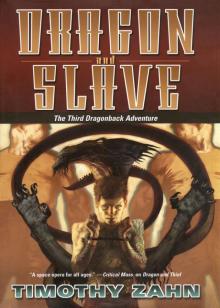 Dragonback 03 Dragon and Slave
Dragonback 03 Dragon and Slave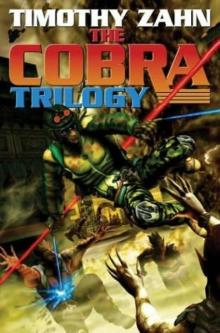 Cobra Bargain
Cobra Bargain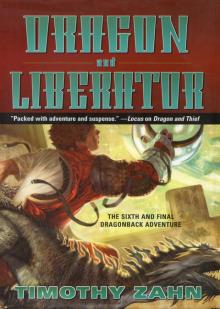 Dragonback 06 Dragon and Liberator
Dragonback 06 Dragon and Liberator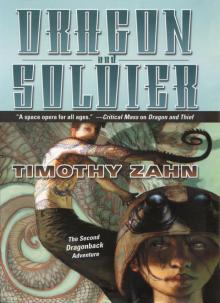 Dragonback 02 Dragon and Soldier
Dragonback 02 Dragon and Soldier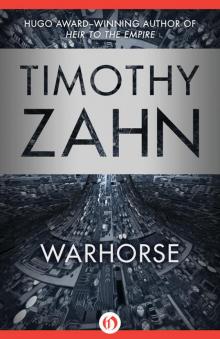 Warhorse
Warhorse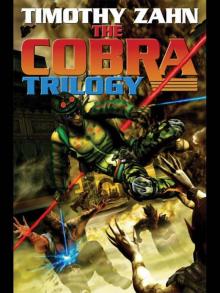 The Cobra Trilogy
The Cobra Trilogy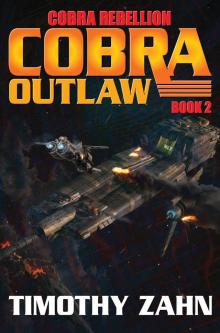 Cobra Outlaw - eARC
Cobra Outlaw - eARC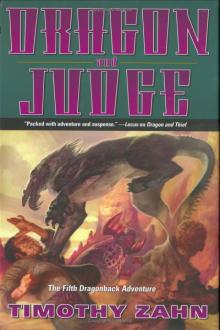 Dragon and Judge
Dragon and Judge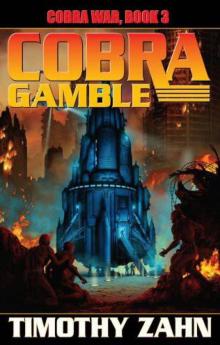 Cobra Gamble
Cobra Gamble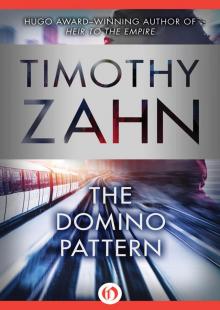 The Domino Pattern
The Domino Pattern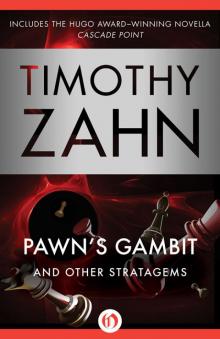 Pawn's Gambit: And Other Stratagems
Pawn's Gambit: And Other Stratagems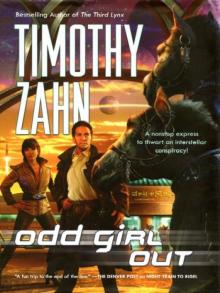 Odd Girl Out
Odd Girl Out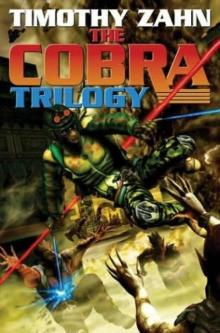 Cobra Strike
Cobra Strike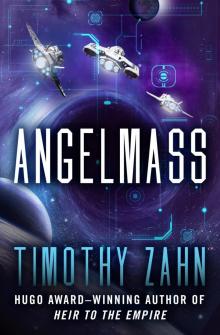 Angelmass
Angelmass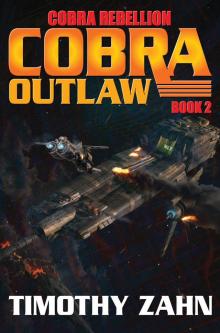 Cobra Outlaw
Cobra Outlaw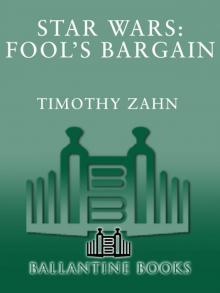 Heir to the Empire
Heir to the Empire The Icarus Hunt
The Icarus Hunt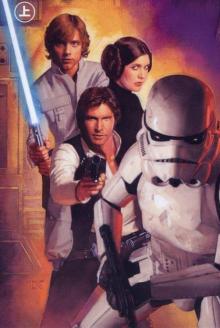 Star Wars - Thrawn Trilogy - The Last Command 03
Star Wars - Thrawn Trilogy - The Last Command 03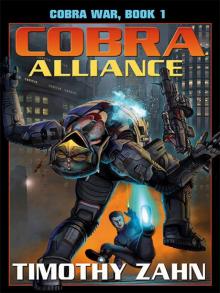 Cobra Alliance
Cobra Alliance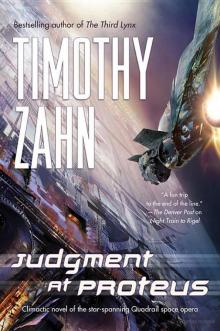 Judgment at Proteus
Judgment at Proteus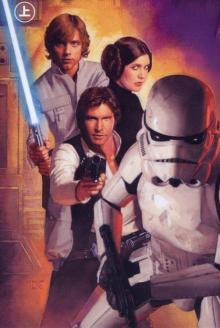 Star Wars - Thrawn Trilogy - Dark Force Rising 02
Star Wars - Thrawn Trilogy - Dark Force Rising 02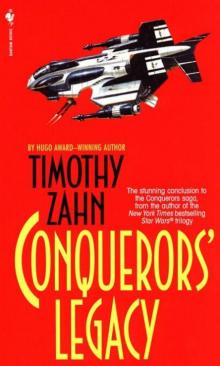 Conquerors' Legacy
Conquerors' Legacy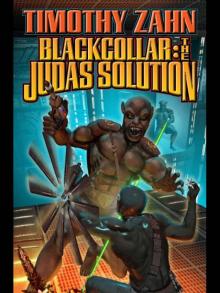 The Judas Solution
The Judas Solution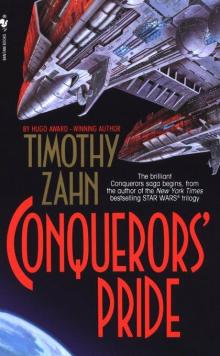 Conquerors' Pride
Conquerors' Pride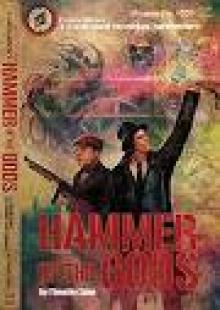 Hammer of the Gods
Hammer of the Gods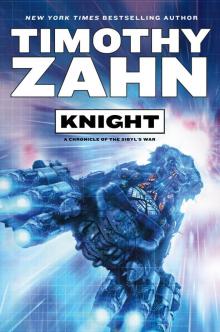 Knight
Knight Ghost Riders in the Sky
Ghost Riders in the Sky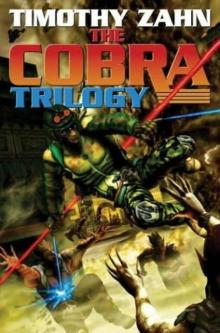 Cobra
Cobra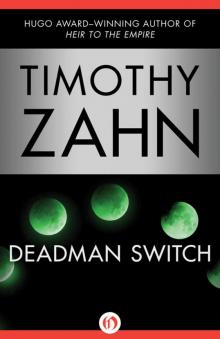 Deadman Switch
Deadman Switch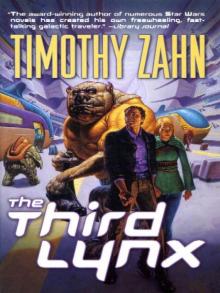 The Third Lynx
The Third Lynx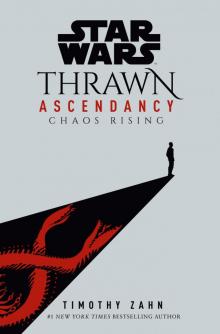 Chaos Rising
Chaos Rising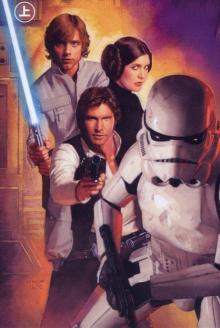 Star Wars - Thrawn Trilogy - Heir to the Empire 01
Star Wars - Thrawn Trilogy - Heir to the Empire 01 Manta's Gift
Manta's Gift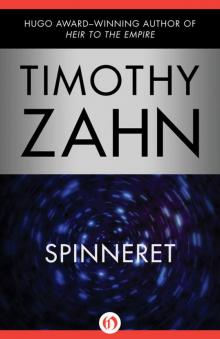 Spinneret
Spinneret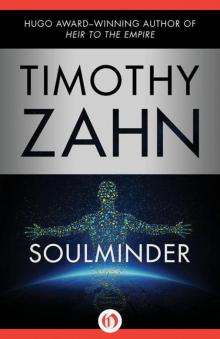 Soulminder
Soulminder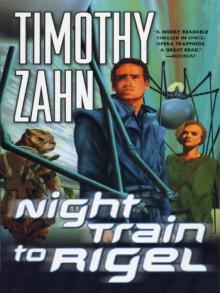 Night Train to Rigel
Night Train to Rigel Blackcollar
Blackcollar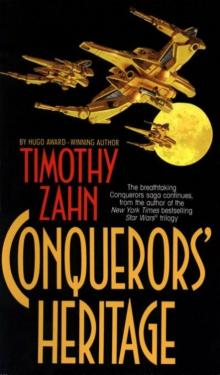 Conquerors' Heritage
Conquerors' Heritage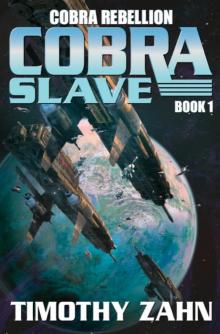 Cobra Slave
Cobra Slave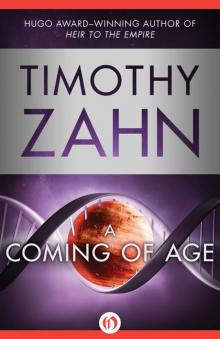 A Coming of Age
A Coming of Age Triplet
Triplet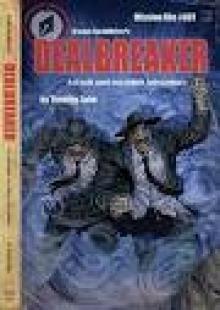 Dealbreaker
Dealbreaker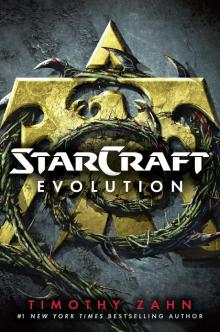 StarCraft
StarCraft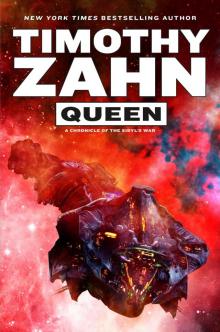 Queen
Queen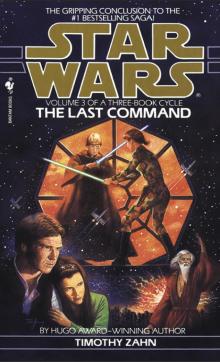 The Last Command
The Last Command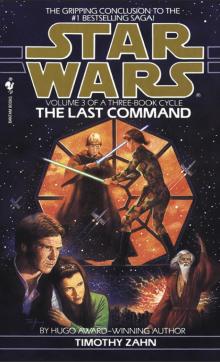 Star Wars: The Last Command
Star Wars: The Last Command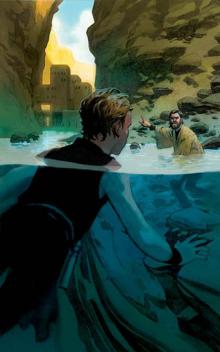 Star Wars Clone Wars: Changing Seasons
Star Wars Clone Wars: Changing Seasons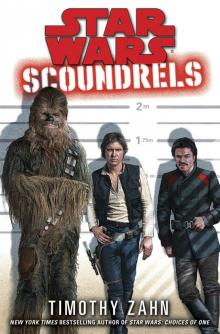 Scoundrels
Scoundrels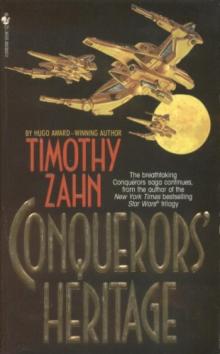 Conquerors 2 - Conquerors' Heritage
Conquerors 2 - Conquerors' Heritage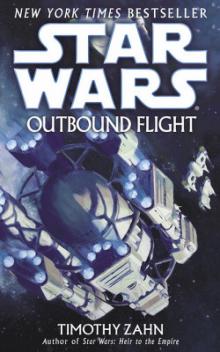 Outbound Flight (звёздные войны)
Outbound Flight (звёздные войны)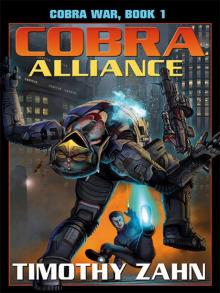 Cobra Alliance-Cobra War Book 1
Cobra Alliance-Cobra War Book 1 Hero of Cartao 2. Hero's Rise
Hero of Cartao 2. Hero's Rise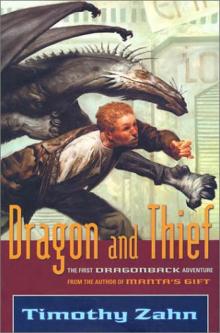 Dragon and Thief d-1
Dragon and Thief d-1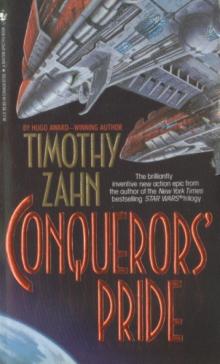 Conquerors 1 - Conquerors' Pride
Conquerors 1 - Conquerors' Pride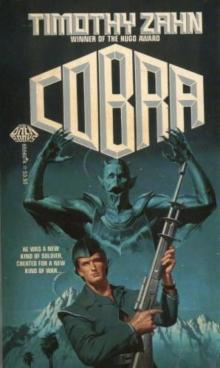 Cobra Alliance cw-1
Cobra Alliance cw-1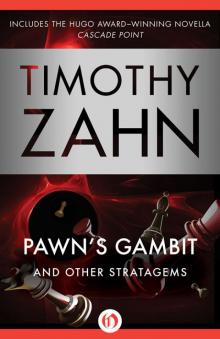 Pawn’s Gambit
Pawn’s Gambit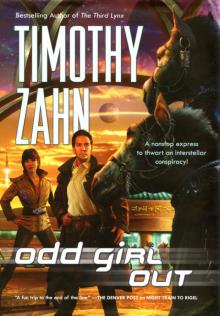 Odd Girl Out q-3
Odd Girl Out q-3 Dragon and Slave
Dragon and Slave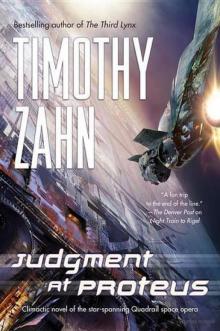 Judgment at Proteus q-5
Judgment at Proteus q-5 Night Train to Rigel (Quadrail Book 1)
Night Train to Rigel (Quadrail Book 1)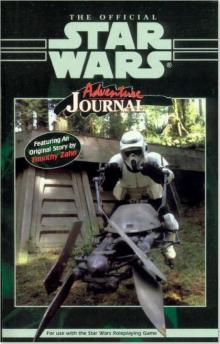 Star Wars: Adventure Journal 11: Command Decision
Star Wars: Adventure Journal 11: Command Decision Dragon And Soldier
Dragon And Soldier Hero of Cartao 3. Hero's End
Hero of Cartao 3. Hero's End For Love of Amanda
For Love of Amanda Distant Friends and Other Stories
Distant Friends and Other Stories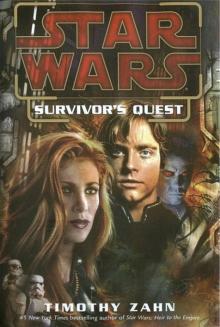 Star Wars: Survivor's Quest
Star Wars: Survivor's Quest Hero of Cartao 1. Hero's call
Hero of Cartao 1. Hero's call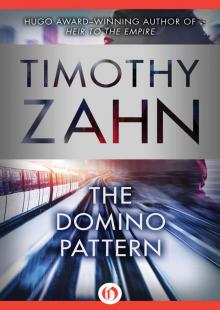 The Domino Pattern (Quadrail Book 4)
The Domino Pattern (Quadrail Book 4)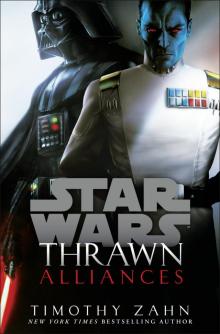 Thrawn_Alliances_Star Wars
Thrawn_Alliances_Star Wars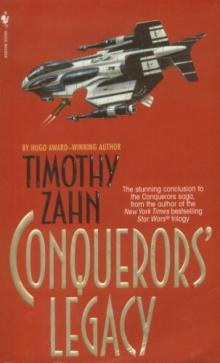 Conquerors 3 - Conquerors' Legacy
Conquerors 3 - Conquerors' Legacy The Blackcollar Series
The Blackcollar Series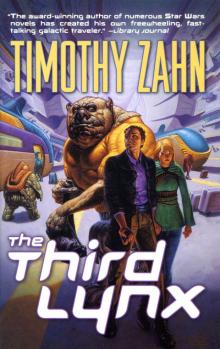 The Third Lynx q-2
The Third Lynx q-2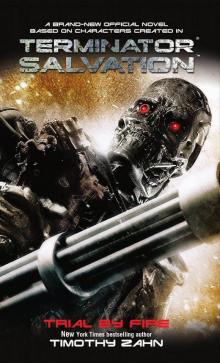 Terminator Salvation: Trial by Fire
Terminator Salvation: Trial by Fire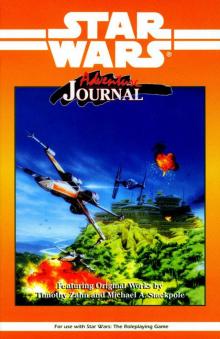 Star Wars - Mist Encounter
Star Wars - Mist Encounter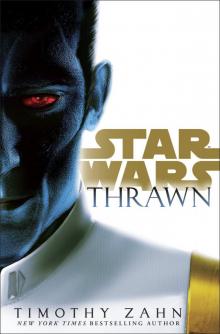 Thrawn
Thrawn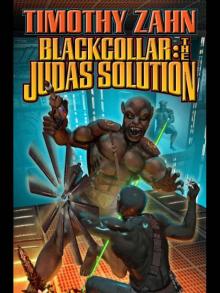 Blackcollar-The Judas Solution
Blackcollar-The Judas Solution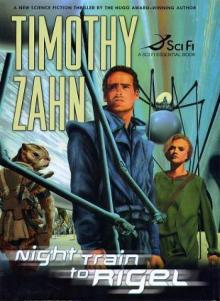 Night Train to Rigel q-1
Night Train to Rigel q-1 Cascade Point
Cascade Point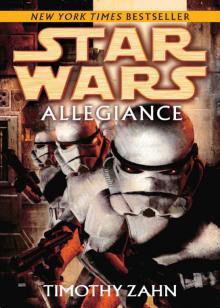 Allegiance
Allegiance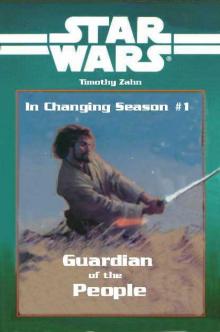 Star Wars - In Changing Season 1 - Guardian of the People
Star Wars - In Changing Season 1 - Guardian of the People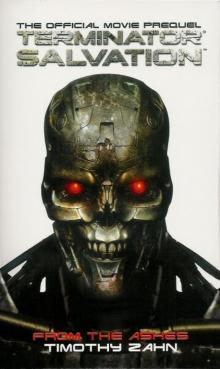 Terminator Salvation - From the Ashes ts-2
Terminator Salvation - From the Ashes ts-2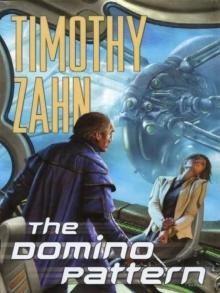 The Domino Pattern q-4
The Domino Pattern q-4 The Big Picture
The Big Picture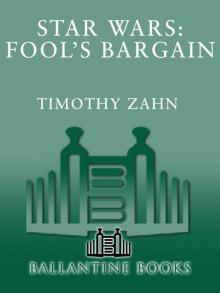 Star Wars: Fool's Bargain
Star Wars: Fool's Bargain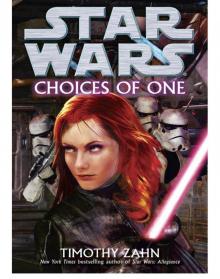 Star Wars: Choices of One
Star Wars: Choices of One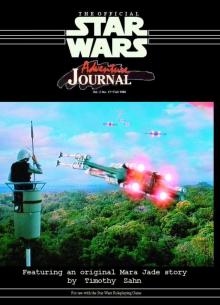 Star Wars - Jade Solitaire - Unpublished
Star Wars - Jade Solitaire - Unpublished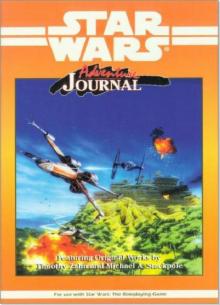 Star Wars: Adventure Journal: Mist Encounter
Star Wars: Adventure Journal: Mist Encounter Outbound Flight
Outbound Flight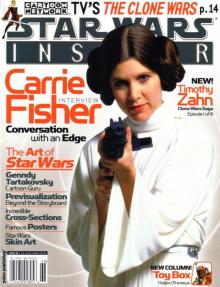 Star Wars - The Hero of Cartao - Part 1 - Hero's Call
Star Wars - The Hero of Cartao - Part 1 - Hero's Call Thrawn 1 - Specter of the Past
Thrawn 1 - Specter of the Past Survivor's Quest
Survivor's Quest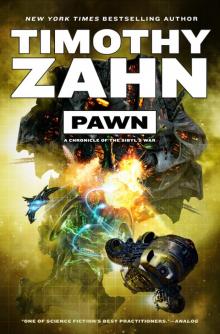 Pawn
Pawn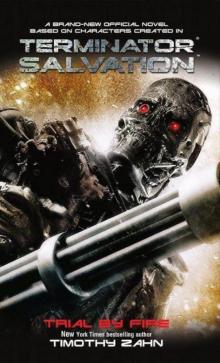 Trial By Fire ts-4
Trial By Fire ts-4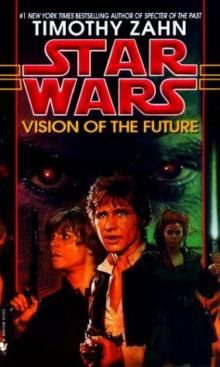 Vision of the future swhot-2
Vision of the future swhot-2 Star Song and Other Stories
Star Song and Other Stories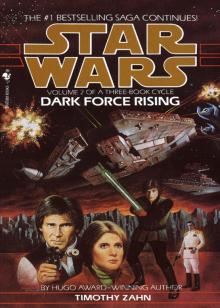 Dark Force Rising
Dark Force Rising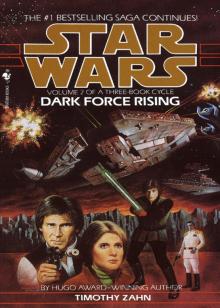 Star Wars: Dark Force Rising
Star Wars: Dark Force Rising Star Wars - Outbound Flight
Star Wars - Outbound Flight Blackcollar: The Judas Solution
Blackcollar: The Judas Solution The Green And The Gray
The Green And The Gray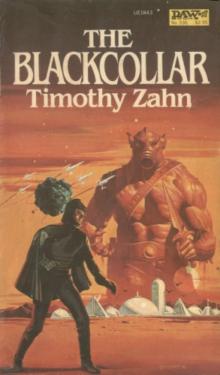 Blackcollar: The Blackcollar
Blackcollar: The Blackcollar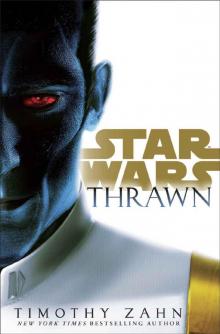 Star Wars_Thrawn
Star Wars_Thrawn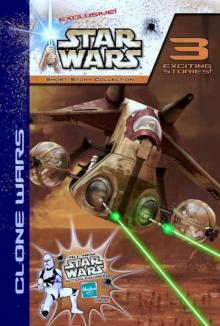 Star Wars - Duel
Star Wars - Duel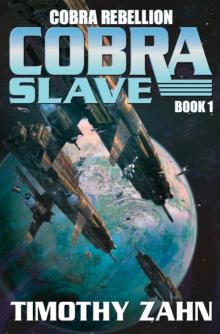 Cobra Slave-eARC
Cobra Slave-eARC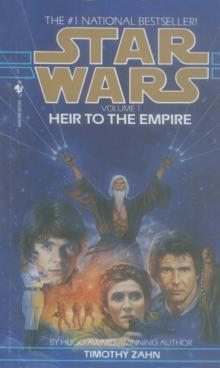 Star Wars: Heir to the Empire
Star Wars: Heir to the Empire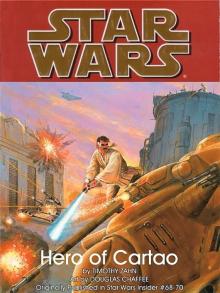 Star Wars: Clone Wars Stories: Hero of Cartao
Star Wars: Clone Wars Stories: Hero of Cartao The Bounty Hunter Wars 1 The Mandalorian Armor
The Bounty Hunter Wars 1 The Mandalorian Armor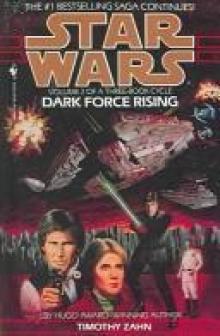 Dark Force Rising (Star Wars) swtt-2
Dark Force Rising (Star Wars) swtt-2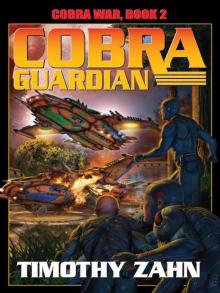 Cobra Guardian: Cobra War: Book Two
Cobra Guardian: Cobra War: Book Two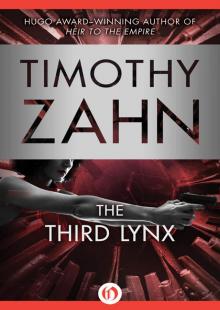 The Third Lynx (Quadrail Book 2)
The Third Lynx (Quadrail Book 2) Time Bomb And Zahndry Others
Time Bomb And Zahndry Others Blackcollar: The Backlash Mission
Blackcollar: The Backlash Mission Winner Lose All--A Lando Calrissian Tale: Star Wars
Winner Lose All--A Lando Calrissian Tale: Star Wars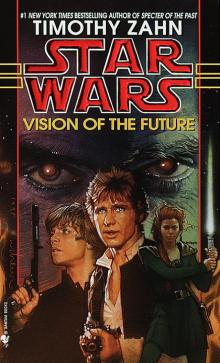 Star Wars: The Hand of Thrawn II: Vision of the Future
Star Wars: The Hand of Thrawn II: Vision of the Future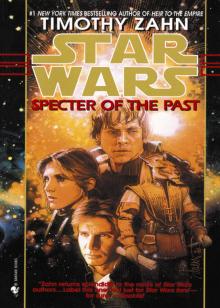 Specter of the Past
Specter of the Past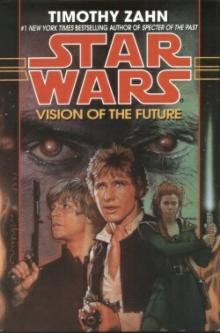 Star Wars - Hand of Thrawn 2 - Vision of the Future
Star Wars - Hand of Thrawn 2 - Vision of the Future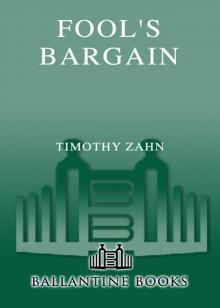 Fool's Bargain
Fool's Bargain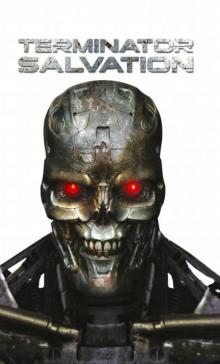 From the Ashes
From the Ashes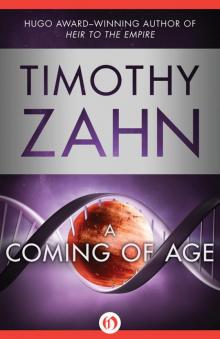 Coming of Age
Coming of Age